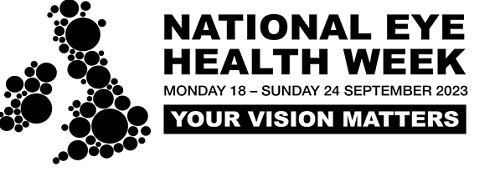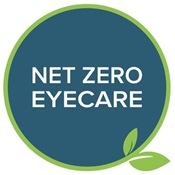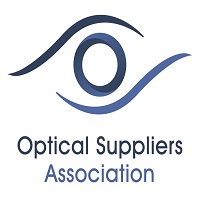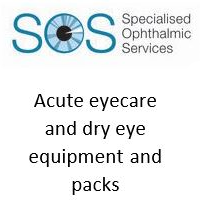General News
National Eye Health Week starts today
National Eye Health Week starts today
Millions missing out on essential eye care
 National campaign launches to encourage people to ‘get back into the habit’ of having regular eye tests, as data shows 4.7 million NHS sight tests have been lost since the pandemic disrupted people’s healthcare routines[1] and 1 in 5 have postponed or cancelled a sight test in the past year due to cost concerns[2].
National campaign launches to encourage people to ‘get back into the habit’ of having regular eye tests, as data shows 4.7 million NHS sight tests have been lost since the pandemic disrupted people’s healthcare routines[1] and 1 in 5 have postponed or cancelled a sight test in the past year due to cost concerns[2].
The campaign, part of National Eye Health Week (18-24 September), comes as health analysts predict a million more Brits will suffer one of the four main causes of blindness in the next decade; with cases of late-stage age-related macular degeneration (AMD) – the UK’s leading cause of sight loss – estimated to rise 25% by 2032, early-stage AMD (drusen) up 16%, cataract 25%, glaucoma 17% and incidence of diabetic retinopathy up five per cent[3].
The attached map highlights some of the areas of the UK at increased risk of future eye disease including: North-East Derbyshire, the London Borough of Tower Hamlets, Milton Keynes and Mid-Ulster.
David Cartwright Chair of Eye Health UK comments: “Prevention, early diagnosis and treatment of common eye conditions are key to reducing the number of people suffering sight loss unnecessarily. Half of sight loss could be avoided simply by ensuring we have our eyes checked regularly, not smoking, and, keeping ourselves fit and well by eating a healthy-balanced diet, staying active and wearing sun protection.”
Regular sight tests are essential health checks for everyone, even if you think your eyes are fine, as damage may be done before you notice it yourself and your optometrist can detect microscopic changes inside the eye. In fact, they can spot glaucoma years before you notice a change in your vision! Changes within the eye can lead to refractive error (short- or long-sight), eye disease and other vision ailments, and can also indicate underlying health conditions such as high blood pressure, raised cholesterol, risk of stroke and heart disease.
Health Minister Neil O’Brien said: “Regular sight tests are essential for everyone – half of sight loss could be avoided simply by having our eyes checked regularly – and free NHS testing is already available for several groups including children, people aged over 60 and those on income-related benefits.
“We are also making free eye tests available within all special school settings and during the past five years the National Institute for Health Research has invested more than £100 million into research on eye conditions.”
Broadcaster, model, best-selling author, and activist, Katie Piper OBE: “My own parents were very strict on routine sight tests when I was younger. I know the power of science, and often with eyes, how quickly things can change, so full eye health checks for my own family are a non-negotiable”[4].
Anyone worried about the cost of eye care should discuss their entitlement to NHS services and other affordable eye care options with their local optician. There are options to suit every budget, so fear of cost should not be a barrier to caring for your vision and eye health.
Lifestyle habits also have a significant impact on eye health regardless of your genetic predisposition[5]. Some of the ways your lifestyle could put you at increased risk of avoidable sight loss include:
Smoking. Smokers have a significantly greater risk of sight loss than non-smokers. Toxic chemicals in cigarettes and vapes can damage the delicate surface and the internal structure of the eye. This can lead to an increased risk of many eye conditions including AMD; nuclear cataracts; thyroid eye disease; dry eye and impaired colour vision. For help to quit visit https://www.nhs.uk/better-health/quit-smoking/
Poor diet. Most of us have no idea that what we eat can affect how well we see, however, eye-friendly nutrients found in many fruit and vegetables and fatty acids derived from fish, nuts and oils can all help protect your sight. Vitamins B and E can help protect against cataracts whilst Omega-3 fish oils help maintain healthy blood vessels inside the eye. Try Marcus Wareing’s Cauliflower Curry https://www.visionmatters.org.uk/downloads/nehw23-marcus-waring-cauliflower-recipe-card-a5.pdf for a tasty dish rich in eye-friendly nutrients.
Lack of exercise. Aerobic exercise can help increase oxygen supplies to the optic nerve and lower any pressure that builds up in the eye. Reducing intraocular pressure can help control conditions such as glaucoma. Get active with https://www.nhs.uk/better-health/get-active/
Being overweight. More than half of all British adults are overweight however maintaining a healthy weight helps preserve macula pigment density, which in turn, helps protect the retina against the breakdown of cells and the onset of AMD. Obesity also puts you at increased risk of diabetic retinopathy and damage to blood vessels in the eye caused by excess body weight has been linked to glaucoma. For help to lose weight visit https://www.nhs.uk/better-health/lose-weight/
Sun exposure. Cumulative exposure to the sun’s UV rays can increases your risk of developing macular degeneration and cataract. Always wear sunglasses when the UV index rises above three, even on cloudy days and check your sunglasses carry a UV400, CE or British Standard Mark to ensure they provide adequate UV protection.
Visit the National Eye Health Week website (visionmatters.org.uk) to check if you are at increased risk of future sight loss using on the online eye health calculator.

























